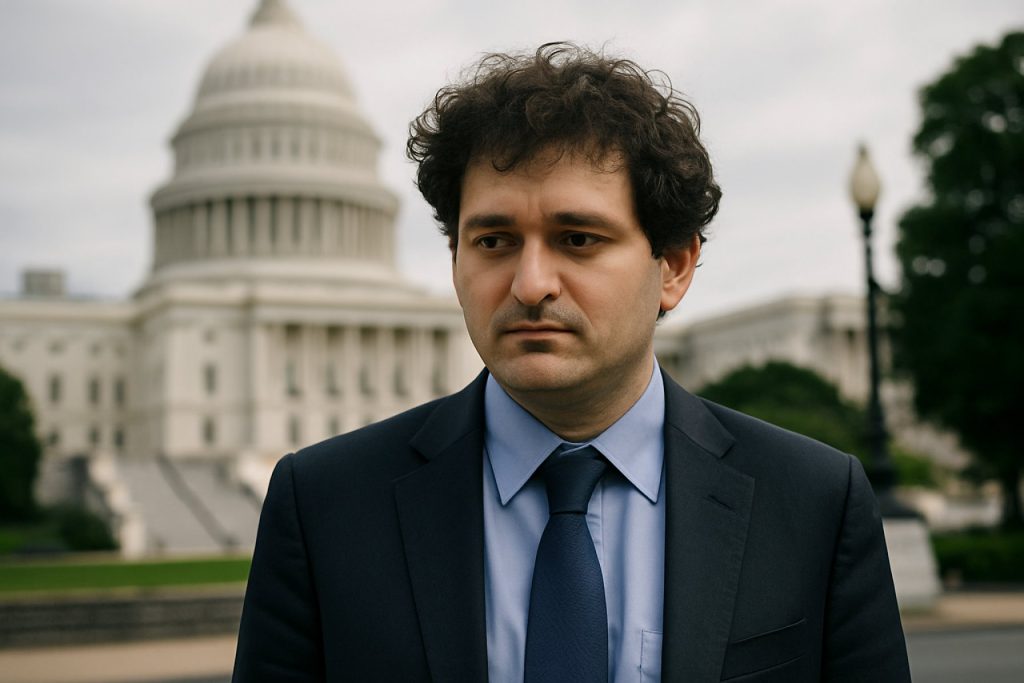
- Trump hosted over 200 investors at his private Virginia golf club, centering on the $TRUMP meme coin valued near $2.5 billion.
- House Speaker Mike Johnson’s lack of explanation about the event raised concerns over political transparency and oversight.
- The overlap of Trump’s crypto interests with public policy fuels ongoing debates about conflicts of interest and accountability.
- Lawmakers, watchdogs, and investors are intensifying scrutiny of the intersection between cryptocurrency, campaign finance, and governance.
- Main issues include transparency, undisclosed guest lists, and the potential risks of blending personal digital assets with public office.
- The situation highlights the need for clear boundaries and greater public vigilance as digital currencies reshape the political landscape.
A rarefied dinner unfolded behind the secure gates of a Virginia golf club, where fortune and influence collided under chandeliers and the lingering fragrance of anticipation. Over 200 investors gathered at Donald Trump’s private club, drawn by more than raw political power — they sought a stake in $TRUMP, a meme coin whose market capitalization now glistens near $2.5 billion.
Away from the clink of cutlery and echoes of wine glasses, a flurry of questions swept through Capitol Hill. House Speaker Mike Johnson, always poised, found himself caught off guard when grilled about the event’s significance during a high-profile TV interview. He claimed ignorance, his words ricocheting across social media. The Speaker’s response — or lack thereof — produced a fresh wave of online commentary, with observers across the political spectrum casting doubt on Congressional oversight.
Why does it matter? This is more than a matter of who scored an invite to the table. Trump’s ownership in $TRUMP, combined with his vocal support of the crypto industry, blurs the line between investment opportunity and potential conflict of interest. Critics point out that rewarding the most influential backers of his coin at a privately hosted celebration sends ripples far wider than the Mar-a-Lago fairways. Some worry that if personal digital assets and public policy become too entwined, transparency will be the first casualty.
The Speaker’s comments did little to calm the storm. When pressed to explain how these developments differ from previous scandals that received exhaustive scrutiny, Johnson drew a line between private and public transparency, suggesting that “everything Trump does is out in the open.” Yet, for many Americans, the murkiness surrounding undisclosed guest lists and the absence of independent oversight feels uncomfortably familiar.
Social media didn’t miss a beat. Detractors lambasted the Speaker’s deflection as old news, a tried-and-true “pretend not to know” maneuver reminiscent of previous Washington showdowns. Pundits and former officials described the moment as another chapter in the evolving playbook of political evasion.
Inside the club, the dinner itself hardly delivered the decadence one might expect; some attendees described the fare as lackluster — water and the occasional glass of Trump-branded wine punctuated a night where, reportedly, the host mingled with only the most elite. Yet for the guests, the main course wasn’t on the plate, but in access and alignment with a powerful campaign.
Democrats have vowed to keep the pressure mounting. As the cryptocurrency sector attracts increasing attention from lawmakers, government watchdogs, and ordinary investors alike, the spotlight on the intersection of campaign finance, personal profit, and U.S. policy only intensifies.
The key takeaway? When political figures straddle the worlds of finance and governance, the consequences often spill beyond those locked doors. Transparency and clear boundaries are not just ideals — they are fundamental for public trust. Washington may have grown used to gray areas, but as digital currencies and personal fortunes rise, the demand for answers grows louder.
For those following crypto’s unpredictable surge or the shifting sands of American politics, the message is clear: pay attention not to what is said, but what remains carefully unspoken.
For the latest on tech, markets, and the economy, visit CNBC. Stay updated on breaking U.S. political developments at The New York Times.
Secret Crypto Soirée: What the Trump $TRUMP Investors Dinner Reveals About Modern Politics, Money, and Influence
Background and Untold Details: Unpacking the $TRUMP Investors Dinner
The high-profile investor dinner at Donald Trump’s private Virginia golf club marks one of the most notable intersections of cryptocurrency, politics, and power in 2024. Although over 200 influential investors attended, the significance and potential ramifications of the event extend far beyond a single glamorous night.
Let’s dive into the deeper context and provide additional insights, controversies, and real-world implications that were only briefly touched on in the original reporting.
—
Key Unexplored Facts & Expert Analysis
- Trump’s Actual Stake in $TRUMP: According to independent blockchain analysis, Trump’s digital wallet is publicly visible and reportedly holds a significant portion of $TRUMP tokens—potentially valued at over $5 million, making him one of the largest individual holders. (CoinDesk)
- Regulatory Blind Spots: The SEC and FEC have not established clear rules for how politicians can promote or profit from cryptocurrencies, raising concerns over “shadow lobbying” and unreported campaign finance activity. As of 2024, formal investigations into crypto donations are underway, but no binding rules specifically govern “memecoin” endorsements by candidates.
- $TRUMP Token Origins and Market Dynamics: This is not an official campaign coin but a meme token launched independently by supporters. Its price is intensely volatile, often fluctuating 20% daily with trading volumes that sometimes mask ‘whale’ market manipulation.
- Potential Conflict of Interest: If Trump actively promotes a coin he personally profits from, it blurs legal lines between commercial endorsement and campaign advocacy—an unprecedented scenario for major presidential candidates.
- Invited Attendees and Confidentiality: Major crypto fund executives and influential political donors made up much of the guest list. Guest privacy and the lack of independent oversight increase the risk of undisclosed deals or preferential policy/lobbying access.
- Congressional Oversight Trends: In 2023-24, multiple bipartisan bills sought to address digital asset regulation, yet few focus on conflicts involving private political endorsements or asset ownership. (Source: The New York Times)
- Market Forecast: Memecoin Risks and Campaign Crypto: Meme coins remain among the most speculative and risk-prone crypto assets. According to CNBC, over 90% of memecoins launched in 2023 lost the majority of their value within months, often leading to pump-and-dump accusations.
—
How-To: Ethical Political Crypto Investing & Risk Mitigation
- Research Token Ownership: Use blockchain explorer tools like Etherscan to verify wallet distribution and tokenomics. Beware projects disproportionately controlled by founders or insiders.
- Prioritize Transparency: Only support projects and political figures who disclose financial interests and campaign finance activities publicly.
- Understand Volatility: Meme coins are speculative; only invest funds you can afford to lose. Use limit orders and practice proper risk management.
—
Real-World Use Cases & Comparisons
- Crypto in U.S. Campaign Finance: While crypto donations are rising, major regulatory bodies (SEC, FEC, CFTC) differ over oversight roles, leaving loopholes. In 2022-23, the OpenSecrets database saw a 240% increase in crypto-linked political PAC funds.
- International Precedents: In Japan, the Prime Minister’s “digital yen” push drew scrutiny after several ministers held large crypto portfolios. Public disclosure laws were tightened as a result.
—
Pros & Cons Overview
| Pros | Cons |
|---|---|
| Direct engagement between investors and policymakers | Potential for undisclosed influence and favoritism |
| Mobilizes new donor bases for campaigns | Highly speculative token value, greater investor risk |
| Rapid fundraising potential through viral tokens | Regulatory loopholes and insufficient oversight |
—
Controversies & Limitations
- Lack of Independent Guest List Verification: Unlike formal campaign events, private dinners have no legal requirement for guest disclosure.
- Policy-Finance Opacity: Inconsistent standards mean that conflicts of interest may go unpunished or unnoticed until after policy impacts.
- Volatility & Manipulation: Meme coins are frequent targets for wash trading and price manipulation—an issue watchdog groups continue to flag.
—
Pressing Reader Questions—Answered
- Could this create a new ‘crypto lobbying’ pathway?
Yes—events like this may encourage a hybrid of traditional influence-peddling and direct funding, only partially visible to regulators. - Is investing in political meme coins safe?
No—experts warn these tokens carry extreme volatility, vulnerability to pump-and-dump schemes, and lack investor protections. (Source: CNBC) - Will government rules catch up?
Momentum is building for new digital asset campaign finance reforms, but as of June 2024, no unified regulatory standard exists for U.S. politicians profiting from meme assets.
—
Actionable Recommendations & Quick Tips
- Demand full disclosure of political figures’ crypto holdings before investing in associated tokens or supporting their campaigns.
- Diversify—avoid concentrating funds in any one political meme coin due to heightened risk and regulatory uncertainty.
- Engage with reputable crypto watchdog sources and mainstream financial news, such as CNBC and The New York Times, for timely updates on regulatory changes.
- Advocate for clearer, enforceable campaign-finance laws addressing digital assets and candidate-owned tokens.
—
Bottom Line: The Trump $TRUMP investors dinner is a bold new signal that the tectonic plates of politics, finance, and technology are shifting. As crypto continues to disrupt traditional campaign funding mechanisms, transparency and legal clarity will become fundamental for safeguarding democracy—and your investments.
If you’re navigating the crypto-political landscape, remember: Watch for what’s not publicly disclosed. Invest cautiously, question conflicts of interest, and stay informed to protect your assets and your vote.



